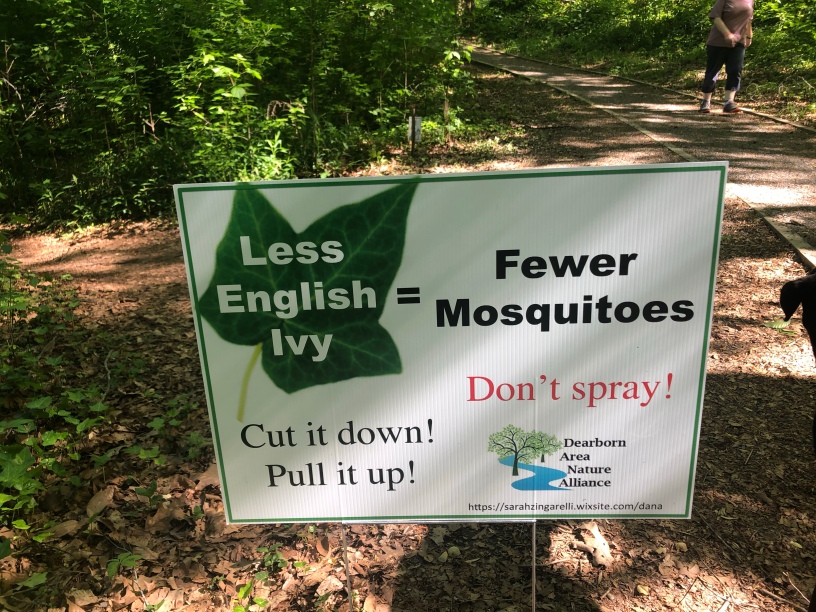We’ve self-designated April as Bring Your Clippers to the Park Month.
Friends of Dearborn park has happily noticed an uptick in the number of people walking through Dearborn Park Trail. A daily walk is a great way of relieving stress during these difficult times. Everyone that we’ve seen has been practicing social distancing, which is awesome.
As may have noticed the park has much unwanted English Ivy, the dreaded Japanese Chaff Flower that you’ve probably seen in your yard and didn’t know what it was; and Chinese Privet which looks pretty, but is quite a bad plant.
Next time you’re in Dearborn Park Trail bring along some clippers or if you’re really adventurous bring some loopers and get some additional exercise by cutting down one or more of these noxious plants.
We don’t know when things will get back to normal, but we do know that a nice walk through the park with a pair of clippers has a very calming effect.
Join Friends of Dearborn Park October 3, 2020, 9am-11am for a park clean up. Join Dearborn Park Nature Alliance to find out more about the Japanese Chaff Flower. And look out on Nextdoor for the South Dearborn Park group as they help clean up Shoal Creek.
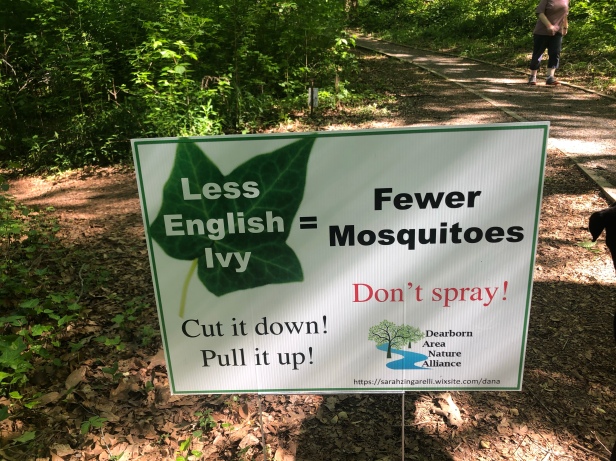
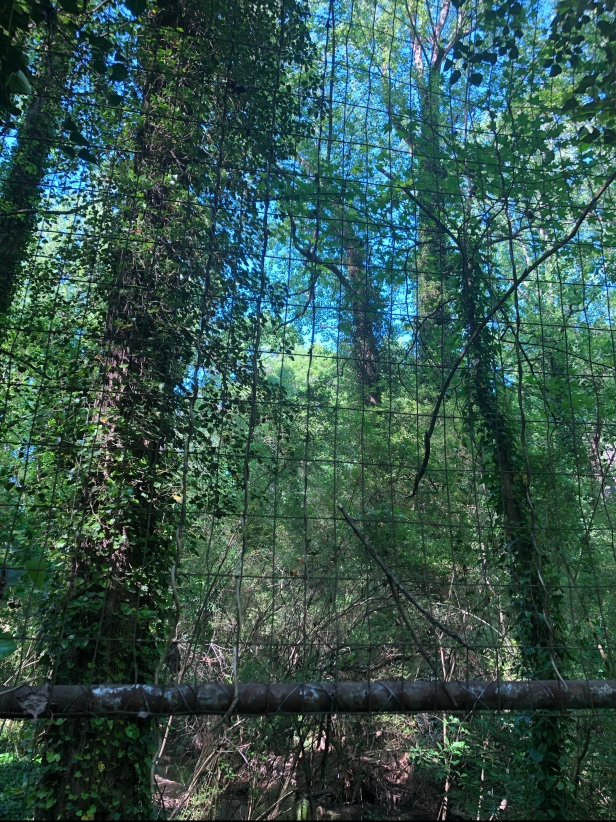
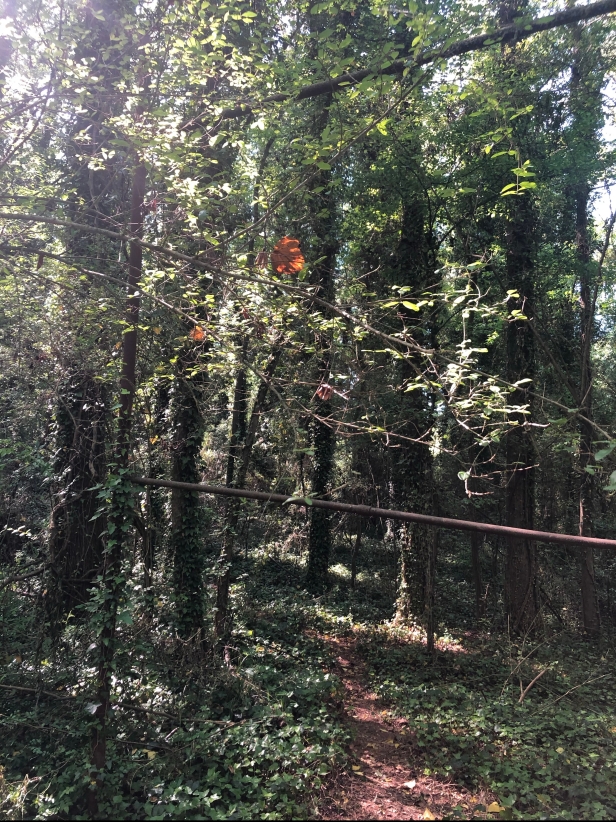
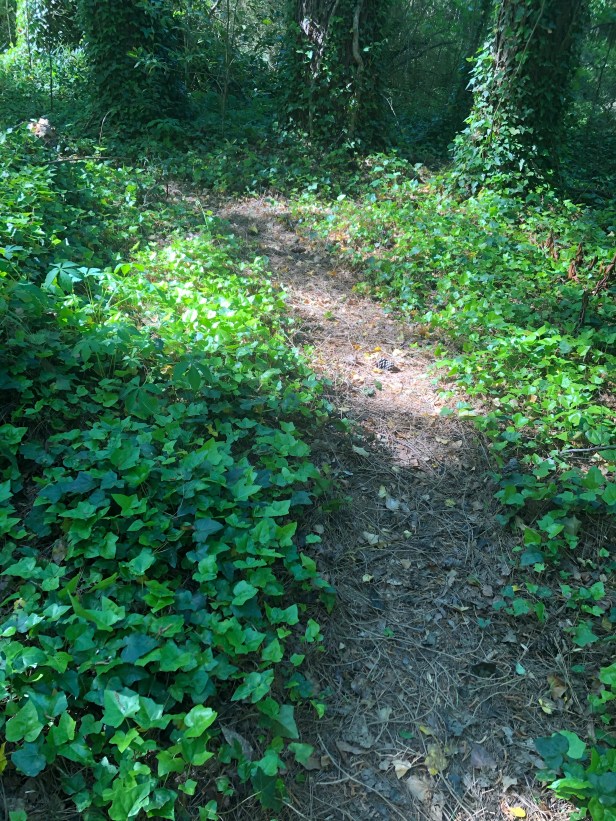
Here are some tips to help ensure you aren’t accidentally introducing dandelions or hawkweeds into an alpine meadow or garlic mustard into a forest understory.
- Clean your hiking boots before and after trips. Non-native seeds can easily hitchhike a ride on your hiking boots. Before hitting the trail, clean your boots, clothes and other gear. You can often find boot brushes at your local dollar store. The point is to clean the mud, dirt and seeds off your boots before and after hiking (some seeds are small and you may not even notice them).
- Check all your gear. Non-native seeds can also stick to the bottom of your pack, the cuffs of your pants or in your in pup’s fur. Do a quick check as you repack your gear in the car to make sure it is free of invasive hitchhikers. If you hike with a dog you might keep a brush in your car to give them a quick grooming before the ride home.
- Stay on designated trails. If you are carrying stowaway seeds and accidentally deposit seeds off trail, you may start a new plant infestation that will be difficult to detect.
- Educate yourself. Did you know that about half of all invasive, noxious weeds are escapees from gardens (e.g., butterfly bush and yellow archangel); the rest are plants accidentally introduced to Washington through human travel and trade. These are great places to start learning about the most problematic invasives in your area.
- Get involved. One way to get involved is helping Friend of Dearborn Park I the biannual cleanups. Join Dearborn Park Nature Alliance who is actively working to clear invasive in dearborn Park Trail, and South Dearborn Park which is cleaning up.
Join Friends of Dearborn Park October 3, 2020, 9am-11am for a park clean up. Join Dearborn Park Nature Alliance to find out more about the Japanese Chaff Flower. And look out on Nextdoor for the South Dearborn Park group as they help clean up Shoal Creek.
Dearborn Park: 10 years from now!
Social Distancing in Dearborn Park: Note all park exercise areas are now officially closed

